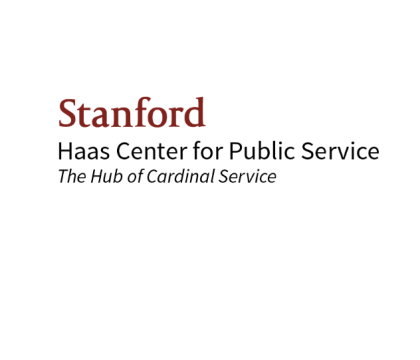Advancing Racial Justice in Teaching
The Haas Center for Public Service welcomes proposals from faculty, lecturers, post-docs, and academic staff to offer new (or revised) academic courses for Autumn, Winter, and Spring quarters in 2021-22 that involve students in community engaged learning projects focused on racial justice, with a preference for projects that directly address anti-Blackness.
The Haas Center will award grants of up to $12,000. Funds can be used to cover project/course-related costs including honoraria for community partners or guest speakers, instructor costs or teaching assistant stipends, paid undergraduate assistants, and project expenses. Funds may also be used to develop teaching materials/resources that can be made available to other courses. Preference will be given to proposals that partner directly with or work on behalf of communities of color, especially Black-led organizations and efforts. While all proposals should address racial justice, they may focus on a range of topics including, but not limited to:
- Policing
- Environmental justice
- Health equity
- Housing and economic security
- Historical memory, monuments, and memorialization
- Arts, media, and creative expression
- Democratic governance and electoral participation
- Anti-racist education and educational equity
Proposed courses should meet the criteria of a Cardinal Course (a community engaged learning course) as designated by the Haas Center for Public Service. While projects and partnerships vary, all Cardinal Courses:
- Engage with a community to address a social problem or societal need
- Integrate course objectives and community-based experiences
- Produce reciprocal benefits for students, faculty, and community partners
- Provide opportunities to critically examine public issues
- Embody Stanford's Principles of Ethical and Effective Service
To submit a proposal, please answer the following questions in short format by August 20, 2021 using the application link below. In your responses, please directly address the preferences listed above. Should we require additional information, the review committee will reach out. Applicants will be notified by September 1, 2021. Successful applicants will be convened to guide future efforts to center racial justice in community engaged learning and research.
- Please describe the proposed course and the learning goals you have for your students. How do these align with the focus on racial justice? If you have a draft syllabus, please attach or send via email.
- Please describe the community engaged component and the partner(s) you plan to work with. How does the proposed project address a community-identified need? What outcomes, goals, or deliverables do you plan to achieve? What conversations have you had with your proposed partner(s) about this collaboration?
- How much funding are you requesting? Please provide an itemized breakdown of your proposed budget.
- Tell us about you, your role at Stanford, and how this course aligns with your broader work. Have you previously taught a Cardinal Course?
Please reach out to Luke Terra at lterra@stanford.edu with any questions.
- Racial Justice. The proposed course and community engaged project should reflect the racial justice focus of the call.
- Impact and feasibility. The review committee will consider the potential impact of the course/project and the feasibility of the proposal given the short timeline.
- Community partnership. The proposed project should address community-identified needs, demonstrate a value to the partner(s), and ideally provide opportunities for Stanford students to learn with community members.
- Cardinal Course criteria. The proposed course should be eligible for designation as a Cardinal Course.
Academic Council Faculty, Lecturers and Senior Lecturers, Clinical educators, Academic Staff, and Post-docs.
Successful applicants will be required to distribute an end-of-quarter student and community partner survey provided by the Haas Center and submit a short final report. Successful applicants will be convened to guide future efforts to center racial justice in community engaged learning and research.
Funds can be used to cover project/course-related costs including honoraria for community partners or guest speakers, instructor costs or teaching assistant stipends, paid undergraduate assistants, and project expenses. Funds may also be used to develop teaching materials/resources that can be made available to other courses.
